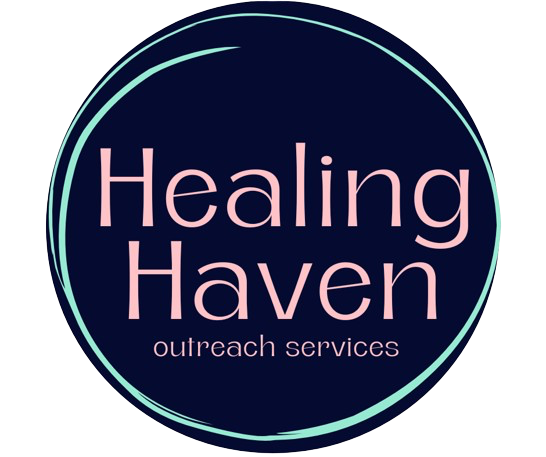
Our Services
Education and Training
We provide virtual and in-person group workshops, covering a wide array of mental health topics relevant to the interpreting profession. Topics cover mental health and interpreting. View our upcoming workshops here.
Professional Coaching
Individual coaching sessions address crucial areas of professional development in the field of sign language interpreting, including topics like advancing professional skills, identifying burnout and compassion fatigue, and developing self-care strategies. Learn more about our coaching services below.
Group Debriefing and Coaching
We facilitate group debriefing sessions focused on addressing shared experiences of compassion fatigue, vicarious trauma, and navigating mental health challenges encountered on interpreting assignments. Examples may include local community events or specialty topics impacting particular communities of interpreters.
Meet our Coaches
Our coaches are dedicated to fostering holistic wellness, using their experience and training to support interpreters in balancing their professional responsibilities and personal well-being. We value empathy, resilience, cultural competence, and a commitment to ethical practice. Through a supportive and trauma-informed approach, we aim to empower interpreters to thrive both personally and professionally.
-
Monique Champagne (MA, BEI-IV, NIC-Master) is a working sign language interpreter with over 20 years of experience, a trained psychotherapist in the state of Texas, and an educator and researcher in the field of mental health and sign language interpreting. As a Child of Deaf Adults (CODA), she possesses a unique cultural insight into the Deaf community and the role of sign language interpreters.
-
Chantal Doucette (she/her) serves as a Director of Operations, Mentor, and Coach at Healing Haven Outreach Services, where she combines her extensive experience as a certified sign language interpreter with her passion for mental health advocacy. With over seven years in the field and a BEI Advanced certification, Chantal understands the unique challenges interpreters face and is dedicated to fostering their well-being. Her background in history and music from Sam Houston State University informs her holistic approach to coaching, as she integrates knowledge of neural pathways and coping mechanisms to help interpreters navigate stress, burnout, and vicarious trauma. Through individualized support and skill-building, she empowers professionals to recognize and address mental health concerns in their work and daily lives.
Drawing from her diverse experience across medical, educational, community, VRS, and VRI interpreting, Chantal offers invaluable insights to those she supports. She believes in the power of community and continuous learning, equipping interpreters with strategies to strengthen their resilience and professional growth.
-
Tiffany Lloyd (BA, BEI-Master) serves her community as a sign language interpreter, an interpreter mentor, and a career coach. She is a graduate of Kent State University with a bachelor’s degree in American Sign Language and Theatre. She later attended and graduated from Tyler Junior College with a degree in Sign Language Interpreting and earned an ASL skills certificate.
She currently lives and works in the Dallas-Fort Worth area and has earned her Master Certification from the Board for Evaluation of Interpreters (BEI). Tiffany has also received specialized training with MHIT (Alabama’s Mental Health Interpreter Training Project), further enhancing her expertise in mental health interpreting.
“If your compassion does not include yourself, it is incomplete.””
*If you are seeking debriefing services that are sponsored by your employer/EAP program, your coaching sessions may be covered. Email us at outreach@healinghavenstudios.com or reach out to your Supervisor or HR department to receive the appropriate link.
Frequently Asked Questions
-
What can I expect in my coaching sessions?
In individual coaching sessions, you can expect a supportive and collaborative environment tailored to the unique challenges that you face as an interpreter. Our coaches will guide you through strategies to improve your mental health, enhance work-life balance, and build resilience. You'll have the opportunity to reflect on your experiences, set actionable goals, and receive personalized feedback designed to promote growth and confidence in your interpreting practice.
In group coaching, you can expect to connect with others who are experiencing similar issues that impact sign language interpreters. Group sessions are guided by a professional trained in sign language interpreting, mental health, and issues unique to the Deaf and interpreting communities.
-
What topics are covered in a coaching session?
Coaching sessions can cover a range of topics relevant to interpreter wellness, including managing vicarious trauma, handling professional burnout, career transitions, and emotion regulation skills to be utilized before, during, or after interpreting assignments.
Our coaches use a holistic, trauma-informed approach, incorporating mindfulness, self-care practices, and emotional resilience strategies. You may also address work-related challenges such as boundary setting, communication skills, and professional development in specialized fields. Every session is designed to meet the individual needs of the interpreter, blending practical tools with personal reflection.
-
What's the difference between coaching and therapy?
Coaching focuses on professional growth, goal setting, and skill development, offering guidance on how to improve aspects of your career and personal well-being. It is action-oriented, forward-thinking, and aims to help you achieve specific objectives within your interpreting practice.
Therapy, on the other hand, delves deeper into emotional healing and addresses psychological issues, past trauma, and mental health disorders. While therapy is often centered on diagnosis and treatment of mental health conditions, coaching is more about enhancing performance and addressing professional challenges.
Coaches in our program have training in and understand the mental health landscape and can provide tools to navigate work-related stress in a healthy way. Healing Haven Outreach Services does not provide psychotherapy advice, treatment, or services, but we can provide referrals if needed.



